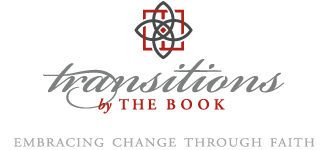We recently returned from the Greenbrier where we go twice a year out in White Sulphur Springs, West Virginia. Each morning of our stay, we have breakfast, or maybe I should say brunch, in the main dining room terrace. In fact, it is our favorite place to eat anywhere in the world. We just love it – enough said.
Sometimes, we have the buffet but more and more, I choose to order off the menu. Since I am diabetic (type 2) it really doesn’t work for me to eat the quiche, breakfast rolls, sausage and gravy, pigs in blankets and all of the other carb filled offerings. Yes, I do eggs, bacon, maybe a piece of Virginia sausage or a patty, but for the most part, including every morning last week, I elected to order a specific breakfast off the menu.
The Greenbrier has the greatest grits in the world; and also wonderful oatmeal. I had the grits as a side one morning and the next day, I noticed that porridge was on the menu. Now I don’t know about you, but I am not aware that I have ever even had porridge. Yes, I am familiar with the nursery rhyme, “Peas porridge hot, peas porridge cold, peas porridge in the pot, nine days old….
So I asked for a sample to taste and I really liked it. Wayne, our server, really couldn’t tell me what was in it. But then I noticed the description in the menu – cracked wheat, corn and rice. I wasn’t satisfied so I looked porridge up to find out what ingredients it contained. Much to my surprise, I found out that porridge can also contain legumes – chick peas, green peas, lima beans, etc. It can also contain oats, barley, quinoa and many other grains. Using cracked grains speeds up the breaking down of the various ingredients. Who knew? But it sure makes the children’s nursery rhyme more understandable!
When I dove into this a little deeper, I discovered that oatmeal and grits are members of the porridge family! But the reverse doesn’t hold… porridge is not a type of oatmeal or grits. So, I guess that I have eaten porridge almost my entire life. I just didn’t understand the definition.
It seems to me that most of us struggle with theological terms as well. For example, what is the difference between justification and righteousness? Or what is an Ebenezer? How about Hallelujah vs. Hosanna? My mind went wild thinking about all the things we say that we may not know the definitions of.
Many times, I get asked these types of questions in my bible study classes. And the answer that I have found most helpful is to encourage people to do the research and look up words and terms they don’t understand.
For example, justification is the concept that a person is declared righteous in the eyes of God through faith in Christ, not by their own works or deeds. However, righteousness is a little different. It is the idea that we have a right standing with God. It has nothing to do with our own works but comes as an act of grace by God for our belief in Jesus. It includes our inner character as well as our outward actions. It also infers an adherence to God’s laws and is linked to the concept of holiness. While we are at it, another word we can sometimes wrestle with is sanctification. This is the concept that as we progress in our walk with Jesus throughout our lives, we become more like Him. That’s called progressive sanctification…
Hosanna is an exclamation that means “save us” or “please save us”. On the other hand, Hallelujah is a combination of several Hebrew words that are a shout of praise and thanksgiving to God. And an Ebenezer is a memorial of stone that commemorates the help of God. Today, it can symbolically be used to recall times in your life when God has helped you, creating something of a mental memorial of gratitude.
And no matter how adept we become at understanding theological terms, there is always more to learn. If it is difficult to understand the difference between oatmeal and porridge, which I have apparently eaten since I was a young boy, it is understandable that trying to understand the phrases of God is even more difficult.
Our verse for tonight is from the prophet Isaiah. This well known prophet reminds us of the difference between God and mankind. He quotes the words of God in Isaiah 55:8-9, “For my thoughts are not your thoughts, neither are your ways my ways,” declares the LORD. “As the heavens are higher than the earth, so are my ways higher than your ways and my thoughts than your thoughts.”
My encouragement this evening is that God expects us to have childlike faith and continue to grow closer to Him throughout our lives. As we become more Christlike, more mature in our faith, understanding the ways of God will become a little easier for us. My prayer is that we will strive to learn more about the concepts of salvation, justification, righteousness and many other terms as we grow closer to God and not only study Him, but have a deeper relationship WITH Him. Have a great day in the Lord, grace and peace…
